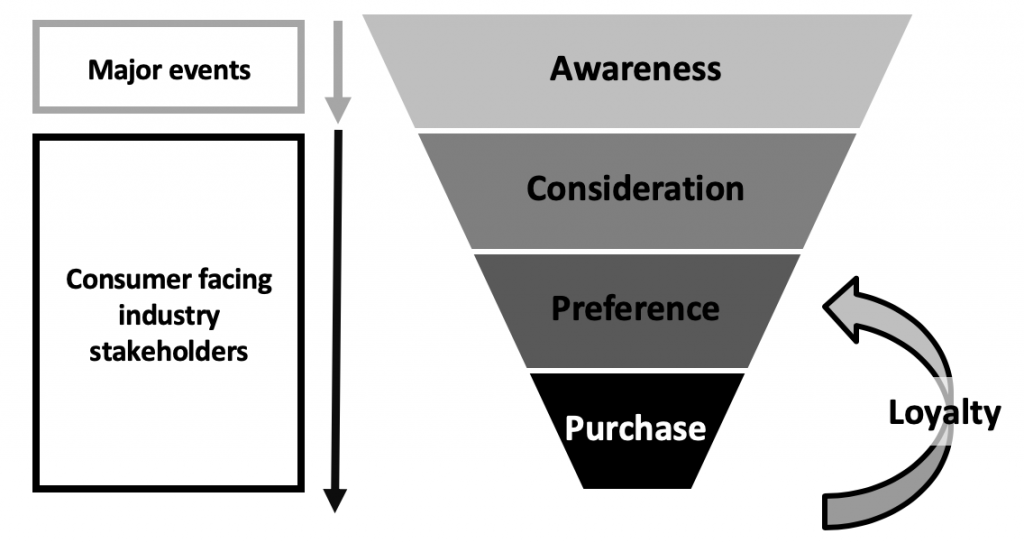Inspiring participation in sport is often mentioned as one of the major benefits of hosting major sporting events. Indeed, uplifts in participation have been cited in the “pitch” for Brisbane 2032 to justify the investment required to host the games. The historical evidence to support this assertion however is, at best, mixed.
The London Olympic Games in 2012 is perhaps the highest profile example of a government using “inspiring participation” as a key reason for investing in a major sporting event. Indeed, many credited London’s winning bid to Sebastian Coe’s final speech, which centred on how the Games would “inspire a generation” to become more physically active. Hundreds of millions of Pounds were invested to deliver on this promise, and three years on, 400,000 less people play sport today in the UK than did in 2012.
The fact that the world’s biggest event – coupled with massive investment in sporting organisations across the UK – hasn’t delivered a sustained increase in sports participation begs two questions:
- Why hasn’t it?
- Do major sporting events have a role to play at all in driving participation?
Why don’t major events deliver clear long-term uplifts in participation?
The logical starting point in trying to answer this question is to look at what prevents the everyday consumer from participating in sport in the first place. At a macro-level, reasons such as “not interested”, “insufficient time due to work”, or “I’m too old” are often cited. At the heart of these reasons however, lie a series of barriers, both functional and emotional. Those barriers that come to the surface most often are:
- The commitment required: “I have so much on, I can’t commit to playing every week. I’ll let everyone else down. I can’t afford it.”
- It can be intimidating: “It’s for young, fit, and skilled people only.”
- Having to compete in organised competitions: “I just want to enjoy a run around and not worry about who won or lost!”
- Aggressive coaches, players and other participants: “I play sport for social reasons. I hate it when people get too competitive or serious.”
All four of the barriers above are inherent in elite sport, and indeed, are often on display for all to see at major sporting events. Given this clear lack of alignment, it is perhaps surprising that major events are even suggested as being a potential driver of participation in the first place.
Do elite sporting events have any role to play in driving participation?
Major events are valued for the boost in awareness they deliver to sports in a crowded marketplace. Major events provide a rare point in time during which a sport can look to capitalise on being front of mind. As such its worth framing the role that major events play in consumer choice and driving participation within the classic “purchase funnel” model (as shown below):

Understanding how major events can help drive participation
The first step in understanding how major events can help drive participation outcomes is being clear about the role they can play in a consumer’s decision-making process. To consider them in isolation as something that can drive a person to go from sitting on a couch to being physically active is an unrealistic expectation.
Once aware of a product, or in this case, a sport, taking a consumer through the steps of consideration, preference and ultimately purchase is not, and never will be the role of a major event. These steps need to be delivered on by those in the marketplace that deliver physical activity programs and products. These could include industry stakeholders, such as national and state sporting organisations, private providers, councils and state government sport and recreation departments.
When a major event is staged, it is these stakeholders’ collective responsibility to be ready and waiting with products, programs and accompanying communications that can capitalise on the spike in awareness the sport will receive.
In the end, understanding that major events can only deliver on a small part of a consumer’s decision-making process is the first step in better leveraging them to drive the participation outcomes so often used to justify their existence in the first place.
To find out how Kinetica can help your organisation or sporting event drive participation effectively, get in touch with us today.